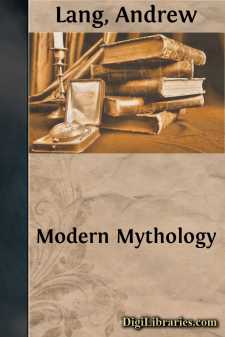Categories
- Antiques & Collectibles 13
- Architecture 36
- Art 48
- Bibles 22
- Biography & Autobiography 813
- Body, Mind & Spirit 142
- Business & Economics 28
- Children's Books 14
- Children's Fiction 11
- Computers 4
- Cooking 94
- Crafts & Hobbies 4
- Drama 346
- Education 46
- Family & Relationships 57
- Fiction 11829
- Games 19
- Gardening 17
- Health & Fitness 34
- History 1377
- House & Home 1
- Humor 147
- Juvenile Fiction 1873
- Juvenile Nonfiction 202
- Language Arts & Disciplines 88
- Law 16
- Literary Collections 686
- Literary Criticism 179
- Mathematics 13
- Medical 41
- Music 40
- Nature 179
- Non-Classifiable 1768
- Performing Arts 7
- Periodicals 1453
- Philosophy 64
- Photography 2
- Poetry 896
- Political Science 203
- Psychology 42
- Reference 154
- Religion 513
- Science 126
- Self-Help 84
- Social Science 81
- Sports & Recreation 34
- Study Aids 3
- Technology & Engineering 59
- Transportation 23
- Travel 463
- True Crime 29
The Works of Robert Louis Stevenson - Swanston Edition Vol. 17 (of 25)
by: Andrew Lang
Categories:
Description:
Excerpt
CHAPTER I
THE ELEMENTS OF DISCORD: NATIVE
The story I have to tell is still going on as I write; the characters are alive and active; it is a piece of contemporary history in the most exact sense. And yet, for all its actuality and the part played in it by mails and telegraphs and iron war-ships, the ideas and the manners of the native actors date back before the Roman Empire. They are Christians, church-goers, singers of hymns at family worship, hardy cricketers; their books are printed in London by Spottiswoode, Trübner, or the Tract Society; but in most other points they are the contemporaries of our tattooed ancestors who drove their chariots on the wrong side of the Roman wall. We have passed the feudal system; they are not yet clear of the patriarchal. We are in the thick of the age of finance; they are in a period of communism. And this makes them hard to understand.
To us, with our feudal ideas, Samoa has the first appearance of a land of despotism. An elaborate courtliness marks the race alone among Polynesians; terms of ceremony fly thick as oaths on board a ship; commoners my-lord each other when they meet—and urchins as they play marbles. And for the real noble a whole private dialect is set apart. The common names for an axe, for blood, for bamboo, a bamboo knife, a pig, food, entrails, and an oven are taboo in his presence, as the common names for a bug and for many offices and members of the body are taboo in the drawing-rooms of English ladies. Special words are set apart for his leg, his face, his hair, his belly, his eyelids, his son, his daughter, his wife, his wife’s pregnancy, his wife’s adultery, adultery with his wife, his dwelling, his spear, his comb, his sleep, his dreams, his anger, the mutual anger of several chiefs, his food, his pleasure in eating, the food and eating of his pigeons, his ulcers, his cough, his sickness, his recovery, his death, his being carried on a bier, the exhumation of his bones, and his skull after death. To address these demigods is quite a branch of knowledge, and he who goes to visit a high chief does well to make sure of the competence of his interpreter. To complete the picture, the same word signifies the watching of a virgin and the warding of a chief; and the same word means to cherish a chief and to fondle a favourite child.
Men like us, full of memories of feudalism, hear of a man so addressed, so flattered, and we leap at once to the conclusion that he is hereditary and absolute. Hereditary he is; born of a great family, he must always be a man of mark; but yet his office is elective and (in a weak sense) is held on good behaviour. Compare the case of a Highland chief: born one of the great ones of his clan, he was sometimes appointed its chief officer and conventional father; was loved, and respected, and served, and fed, and died for implicitly, if he gave loyalty a chance; and yet if he sufficiently outraged clan sentiment, was liable to deposition. As to authority, the parallel is not so close....












